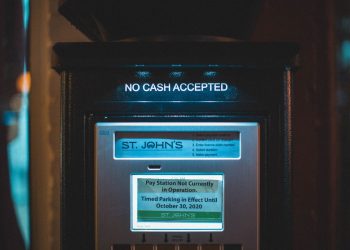No products in the cart.
9 Real Career Lessons from Elon Musk That You Won’t Learn in School
What can students and professionals actually learn from Elon Musk’s career? These nine real lessons—grounded in facts, failures, and big wins—offer a rare inside look at how one of the world’s most ambitious minds navigates work, risk, and purpose.
Elon Musk’s rise from coding BASIC games in Pretoria to steering billion-dollar firms and rockets is more than headline fodder—it’s a rich case study in mission‑driven life, relentless execution, and thinking in first principles. Forget textbooks—these lessons come from real setbacks, hard decisions, and breakthrough moments.
1. Think Big, Start Smaller
When Musk launched SpaceX in 2002, the private‑rocket idea was dismissed by seasoned aerospace engineers as impossible. His approach? Deconstruct the challenge: study propulsion, assemble a team of top engineers, design for reusability. After three Falcon 1 failures (2006–2008), the fourth launch succeeded—making SpaceX the first private company to orbit a liquid‑fuel rocket. That led to a $1.6 billion NASA contract and irreversibly shifted the aerospace landscape.
| Falcon 1 Launches | Outcome |
|---|---|
| 1–3 (2006–2008) | Failure |
| 4 (Sept 2008) | Success |
| 5 (Jul 2009) | Commercial success |
Table data: Falcon 1 launched five times with two successes after three failures.
2. Work More Than the Norm
Musk doesn’t just preach hard work—he lives it. In Zip2’s early days, he slept under his desk and showered at the YMCA. His ethos: astronomical hours equal exponential payoff. As he put it:
“Work like hell. You just have to put in 80-to-100-hour weeks every week. … You will achieve in four months what it takes [others] a year.”
During Tesla’s Model 3 crisis, he clocked 120‑hour weeks—Ambien‑fueled and exhausting—but it brought production back on track.
Work More Than the Norm Musk doesn’t just preach hard work—he lives it.
3. Mission Trumps Money
Musk could have cashed out after PayPal, but instead invested nearly everything in Tesla, SpaceX, and SolarCity—even going without a house and fearing financial ruin. His internal promise: if the mission matters, keep going regardless of risk. That belief ultimately fueled breakthroughs in renewable energy, space exploration, and electric mobility.
4. Feedback Is Gold
Elon incentivizes smart criticism. Praise informs, but problems drive progress. At both Tesla and SpaceX, engineers are urged to report failures candidly—no finger‑pointing. That culture turns mistakes into catalysts for improvement. Musk said:
“A well‑thought‑out critique of whatever you’re doing is as valuable as gold.”
5. Fight Distractions, Focus on Signal
Meetings with no purpose? Cancel them. Acronyms that add noise? Ban them. Musk’s own calendar is boiled down to 5‑minute blocks. If you’re not contributing, he advises walking out.
“Walk out of a meeting or drop off a call as soon as it is obvious you aren’t adding value.”
This ruthless clarity turbocharges productivity.
6. Embrace Calculated Risks
Musk is no gambler—he’s a chess player. His famous line:
“It’s okay to have your eggs in one basket as long as you control what happens to that basket.”
He funneled PayPal gains into space and automotive dreams, but only after deep learning—studying rocket science, battery chemistry, auto manufacturing.
He funneled PayPal gains into space and automotive dreams, but only after deep learning—studying rocket science, battery chemistry, auto manufacturing. It paid off.
7. Hire for Solve, Not Status
Resumes? Musk sees right through them. He prefers real‑world problem solvers. His go‑to interview question:
“Tell me about some of the toughest problems you worked on and how you solved them.” Research shows this draws out detail and weeds out embellishment.
8. Count Your Hours—Then Make Them Count
Musk reminds us we each get roughly 80,000 career hours. The question: what will you build, learn, or change with them? Buildings rise, rockets launch, and careers compound when grounded in purpose and focus.
9. Stay Humble, Keep Learning
Despite visionary status, Musk still teaches himself complex subjects: aerospace, AI, subterranean tunnelling. He even debates seasoned engineers, not as a show, but out of curiosity—and constant refining. That mindset separates thinkers from doers.
Elon Musk’s career isn’t just a roadmap to fame—it’s a study in aligning intense effort, deep learning, and meaningful purpose.
Quick Fun Facts
- At age 12, Elon coded and sold Blastar, a BASIC game, earning $500.
- He once crashed a $1 million McLaren F1—didn’t insure it—but shrugged it off.
- The names Falcon 1, 9, and Heavy all nod to Star Wars’ Millennium Falcon.
What You Can Put into Practice
- Pick a bold mission, break it down, and chase it relentlessly.
- Audit your week—cut the noise, reclaim the hours.
- Invite real feedback—you don’t grow from agreement.
- Share your problem‑solving story next time you interview.
Elon Musk’s career isn’t just a roadmap to fame—it’s a study in aligning intense effort, deep learning, and meaningful purpose. His story shows that with clear focus and hard work, nearly impossible goals become possible.
Let’s hear from you: What mission are your 80,000 hours dedicated to? Share your journey—we may feature it next.











